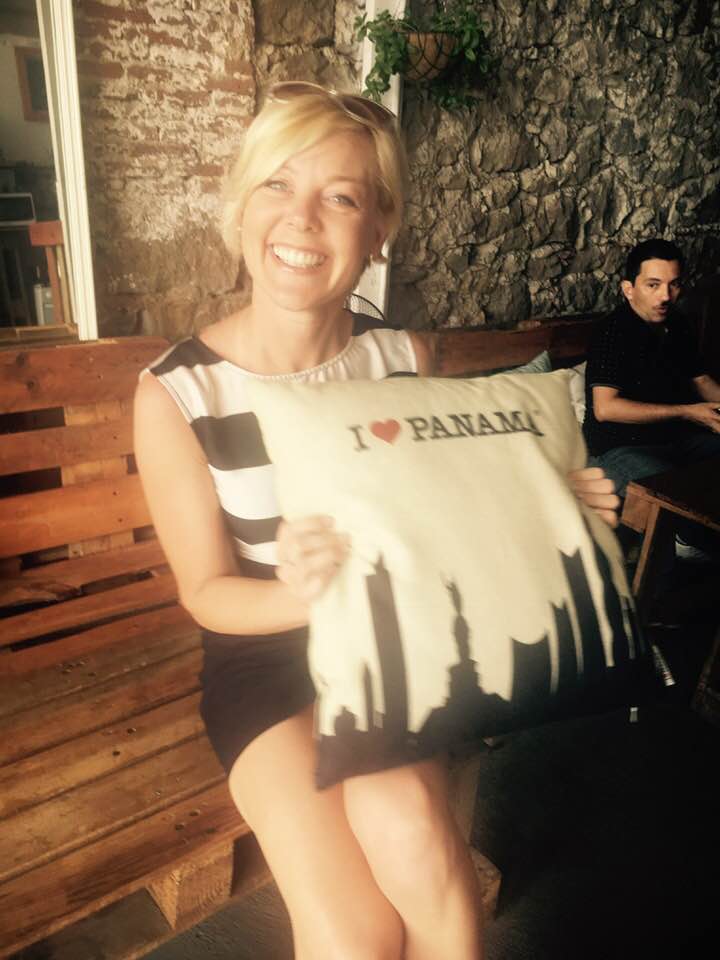|
It’s not uncommon to run into more than one relationship in our life that feels toxic. Sometimes, we may even begin to notice a pattern of these types of relationships. This realization can leave us feeling like we are the common denominator.
Many clients ask the question, “Is there something that I am doing to attract narcissistic people?” and “Why did this happen to ME?”. Let me start by saying, it is never your fault when someone else behaves like a jerk. We are all responsible for our own behavior. Let’s be clear about that. There is nothing that we do to cause narcissistic people to behave they way that they do. Equally, there is nothing that we can do to fix these toxic behaviors in others. There are, however, some things that predispose us to falling in with toxic people. Recognizing these tendencies, with self-compassion, is part of our journey toward building a life full of secure attachment and healthy connection. Becoming more aware of our own patterns and behaviors, we gain deeper insight into how to recognize, and steer away from, toxic people. We’re never fated to a life of unhealthy relationships. We are always growing! Getting entangled with a narcissistic person results from a combination of circumstances. Where we are in our own life journey; time, place and context, combined with crossing the path of a narcissist hungry for new supply, can lead us unknowingly into the trap of a toxic relationship. Below are six possible reasons you might have become entangled with a narcissistic person. 1.You are an optimist. Looking on the bright side is a great quality. This makes you shine. It’s part of your spark! However, applying a blanket of optimism to an abusive relationship can turn into avoidance or denial. The optimist assumes that things will improve and therefore tolerates offensive behavior longer than necessary. Misdirected optimism can lead us to minimize treatment that’s hurtful and exaggerate the narcissist’s potential for change. 2.You have a forgiving nature. A forgiving nature often goes hand in hand with being empathic. Empaths have a great ability to relate to another’s side of the story. We’re willing to lend support to those in need and don’t like to stay mad for long. Empathy makes the world a better place and when reciprocated is a hallmark of secure attachment. When dealing with a person who is interpersonally exploitative, being too quick to forgive gives the offender the “green light” to continue their controlling behavior. Your feelings and needs are important and shouldn’t be minimized. Being upset when someone hurts us is our intuition’s way of saying, “Something feels off here”. This is how we know where our boundaries lie. It’s our responsibility to honor this intuition in ourselves and set standards of acceptable treatment. It is okay to say, “No. This is not acceptable for me.”. 3.Your self-esteem needs some extra nurturing. Sometimes we feel really good about who we are and other times, not so much. Our life experiences and past hurts, if gone unresolved, linger in our psyche and result in patterns of self-doubt, low confidence and a negative self- perception. Oftentimes, we seek to soothe these discomforts by reaching outward. While this creates temporary relief, it may also be a distraction from working through our own issues. Narcissistic people are skilled at mirroring what they think you need to hear and are masters at spotting our vulnerabilities. Being intentional about working through our own insecurities and nurturing our self-esteem reduce susceptibility to toxic relationships. 4.You have had a narcissistic parent or caregiver. In some cases, we may have had a narcissistic parent or caregiver. Growing up with a narcissistic parent creates a kaleidoscope of unhealthy beliefs about our SELF and our connection to others, that require conscious and intentional effort to reframe. Co-dependent and people pleasing tendencies are common in adult children of narcissists. Sometimes, we end up with narcissistic partners because, consciously or unconsciously, the dynamic feels familiar. If we haven’t had a healthy relationship modeled to us, we don’t know any better. 5.You initially found the person very attractive. Narcissistic people don’t walk around with horns on their head. They’re often very charming, charismatic and fun to be around. There’s a reason we are attracted to these people. The problem is, it’s only a sliver of their personality, the part they perfect for the audience and wear externally. Underneath, is a person who lacks empathy, is unable to “see” you authentically, or to reciprocate emotional intimacy in a healthy way. While it may feel thrilling at times, it’s not sustainable and will ultimately leave you feeling drained and estranged from reality. 6.You simply didn’t know exactly who you were getting involved with. Another reason that we end up so deep into a relationship with a toxic person is that we really didn’t know. We may not have had a relationship like this ever before and were completely unaware that ‘narcissistic abuse’ was a thing. As an empathic person, the assumption is that others are capable of reciprocating our kindness and using rational skills like compromise, communication and healthy problem solving. Narcissistic people use gaslighting and manipulation to gain psychological control. They essentially hijack our psyche. While the relationship begins to unravel, we are in shock and disbelief. “Is it me, or is this person completely creating their own version of reality?”. You are not crazy. When your intuition is telling you that something is off, trust that feeling. The slow and hard realization of the truth about who this person is can be excruciatingly painful. You are not crazy, you simply did not know. If you can relate to any of this, I’m sorry for the pain and confusion you’ve experienced. I get it! Surviving an intimate relationship with a narcissistic person is life altering. While it can be the most painful thing you have endured, it can also be a huge catalyst for growth. These hard earned experiences can push us into a deeper connection with ourselves. They help us clarify exactly what our boundaries are and teach us how to begin protecting ourselves from being taken advantage of in the future. Remember that you are never destined to a pattern of toxic relationships. Most of us are learning as we go. Each relationship we have on our journey is a new opportunity for growth.  For the twenty to forty something adult, in our time, making and sustaining meaningful social connections can be as rare as finding a four-leaf clover. If we are lucky, and look hard enough, we may find a few. However, much of the time, we find ourselves lost in a sea of superficial connections, transient acquaintances and seasonal BFF’s. We are doing all the right things, showing up to gatherings, going to the local gym, yoga studio, coffee shop or happy hour. We may have even tried organizing events ourselves, downloaded a local networking app or contributed our wise words of wisdom on Facebook groups and community forums. Hoping to find our tribe. Yet, we still often feel alone and emotionally isolated on an overpopulated planet. Is it me? Am I just not good at sustaining meaningful connection with others? My lifestyle doesn’t lend itself to long-term connection. Nobody really understands me. I am different than most people. These are some of the distorted beliefs that we internalize in an era of social media, nomadic lifestyles and dispersed community. We are transient, global citizens now. We know many people, in many places. Yet, on a deeper level we often feel disconnected from each other. I assure you, it isn’t just you. This is a thing. This social dissociation, isolation and loneliness is a major factor in our epidemic of anxiety and depression among adults. It has become the elephant in the room of modern culture. We live in the age of self-help podcasts, life coaches and holistic wellness practices. This is all good stuff! The growing draw toward organic sources of wellness may be indicative of our need to feel a deeper sense of connection to our own identity and to our place in the world around us. Yet somehow, something is still amiss in our pursuit of true belonging. In the generations that preceded ours, community was easier to come by. People stayed in the places they were born and accumulated layers of common experiences over time. We were bound together by default. A big move might be to the next town, not across the globe. Technology was simpler and our social networks were smaller. We shared common values that largely revolved around a sense of place and generations with of history. The blueprint was already laid out for us. A sense of belonging and meaningful connection to others is an essential part of good mental health. Our place in community reinforces how we see ourselves and is in part, how we affirm our identity. It isn’t 1936, I get that. But, the way we live has changed dramatically over a few generations and we have paid only small attention to the, ever-evolving, social and emotional costs of these changes. This is not necessarily a bad thing, but it does mean that we need to be more intentional about how we build community in our daily lives and to recognize that we are not completely alone in feeling alone. When we internalize this larger sociological issue, we begin to create limiting beliefs that perpetuate our feelings of disconnection. I do not belong. I am different than others. People are superficial. The good news is that there are definitely things we can do right now, to be intentional about cultivating a sense of community and creating deeper connections in a technology saturated, nomad-dominant era. Bringing us closer to a sense of belonging, integration and personal identity. Here are a few... Nurture friendships from past and present. We can do our part to keep the fires burning with geographically distant friendships. When you think about a distant friend, communicate with them immediately! Make this your golden rule. Keep the dialogue going and go the extra mile(s) to stay connected. Being consistent in contact, means that you do not have to catch up on the past ten years every conversation (which can feel daunting) and you can make space for more day-to-day conversations. The real you, not the polished cliff-notes version. Do not be afraid to be vulnerable. When we are able to show our vulnerability to others, they are more likely to find us relatable and let their guard down a bit. Opening the door for more meaningful connection. The truth is, we have much more in common than we think. Fix family conflicts. Estranged siblings, parents, grandparents, cousins? It seems to be a common trend to have one or more family members that we no longer talk to. We hold on to the hurt feelings and simply choose not to participate in being a daughter, sister, brother, etc.. Assuming it safe to do so, consider mending old wounds and reconnecting with members of your original tribe. Seek places that have history, culture and less transient populations. When scouting out a new community to live in, think about the history, the architecture, and the culture of that place. Look for communities with a vibrant art culture, small businesses, and a sense of identity or a palpable history. Introduce yourself to the neighbors. Sound obvious? What are your neighbor’s names? You may or may not know these folks for a lifetime, however, taking the time to greet a new neighbor can reinforce your shared sense of place and strengthen your feelings of belonging in your physical community. Honor traditions and make up your own. Traditions and rituals are repeatable and symbolically meaningful. Things like seasonal dishes, vacation spots, and birthday celebrations reinforce the values of origin that make us who we are. If you do it more than once, it’s a tradition. Make up your own and share these statements of your history and identity with others. Learn about your family heritage. Connecting to a cultural, ethnic or geographic story about how we got here can anchor our sense of identity and place in the world. Amazon Prime didn’t deliver us to our parent’s doorstep, a long line of lives and fascinating journeys got us here. We can honor that by taking the time to find out where we came from. Use social media responsibly. Let’s face it, this is a major culprit in our growing feeling of social isolation. It’s often miss-used and can leave us feeling even more alienated. Set limits to protect your own reality and be mindful of how you internalize scrolling through other people’s projections of the “good life”. Less networking and singles meet-ups and more civic engagement. While networking events and meet-ups can be a great way to connect, they are often short-lived and fleeting. If you are looking for more sustainable ways to connect to your community consider volunteering, attending city planning meetings or well established civic groups. Becoming a Big Brother/ Big Sister or mentoring a young person can create a deeper sense of meaning and possibly a life-long friendship. Utilize therapy and coaching support. The reality is that we all need to feel genuinely and authentically understood. If the times are a changing, and they are, flow with the tide. It is not only acceptable now to seek therapy, it is practically expected. Many people utilize the therapy and coaching relationship to work through the challenges of living in a socially/emotionally disconnected era. These tools are everywhere and easy to access from any part of the world. Recognize that social structure is evolving and do not internalize it. The most important take away here is to remember that you are not completely alone in feeling a bit disconnected from community. Finding difficulty in making meaningful social connections is a sentiment that I have heard from SO MANY people in recent times. Be careful not to turn a larger sociological issue into a perceived personal defect. These deeper connections, feelings of identity, belonging and sense of community are completely available to us all. We only need to re-think our approach and be intentional about seeking what we need to feel connected. If you are interested in exploring these ideas further, let’s talk. Through the Global Wellness Center, I offer Psychotherapy and Life Coaching both in-person and online. I’d love to hear your perspective on this topic. Feel free to email your thoughts and ideas to [email protected]. The New Resolution: |
Jamie Lee Carter, LCSW
Archives |




 RSS Feed
RSS Feed